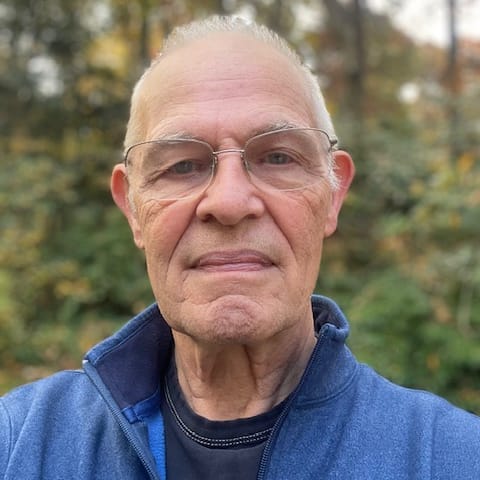
Peter shared his story in October of 2024.
In August 2024, I went in for a colonoscopy and brought my advance directive as requested. Apparently the hospital had lost the copy I left there a while back. I was told that before my procedure, someone would take the new copy and put it on file.
So there I was, ready for my procedure, with two copies of my advance directive in a manila envelope. But no one asked me any questions about my wishes or my health directive. And at the end of the procedure, I still had the two copies.
As I was recovering, I mentioned to a nurse that no one had requested my advance directive. I joked, “It might be a better idea for me to get a DNR order tattooed on my chest.”
Her reply shocked me. “Well, it’s not going to work,” she said. “Because we ignore those things. We just do what we have to do, and that’s it.”
That really got me thinking about care at the end of life and what needs to happen in order for our wishes to be honored.
My colonoscopy was a fairly minor procedure, and all went according to plan. But that was not guaranteed. I’ve had several friends who received life-saving interventions with a very poor outcome following routine procedures — one whose heart stopped during a gallbladder operation, another whose blood pressure skyrocketed following surgery and did irreparable damage to his brain. In both cases the treatments they received left them unresponsive for a long time before they finally died. It was awful.
To me, it seems clear that a lot needs to change both in our healthcare system and for the rest of us who are consumers. To make patient-directed care more of a reality, healthcare providers need protocols in place that they actually follow. In the meantime, however, those of us receiving care need to know that documenting our wishes in writing is good, but on its own it is not enough.
I’ve talked about my wishes for my end-of-life healthcare with my wife and kids, my friends, and my primary care provider. My family and I have very few inhibitions in talking about different scenarios that can play out at the end. We know firsthand that without more of a standard around honoring advance directives among healthcare providers, the most important thing we can do is have conversations with each other. A lot depends on what our loved ones convey to medical staff. We have to make sure we prepare them for our end of life, because they are the ones who are most likely to have to do the final heavy lifting.
Recently, a friend of mine who is in her 80s was thinking about her advance directive, and she said to me, “Peter, you’re going to be my proxy,” because she had no doubt I would fight for her not to have any medical interventions she would not want. That’s an ongoing conversation between us — and that’s the way it should be.
It’s a human thing to say, “Why should I talk about something today if I can talk about it tomorrow?” After all, today and tomorrow are not so different. But in physics and mathematics, we call this the infinite regress: There’s no end to that argument, because the same statement will apply tomorrow. In fact, there’s no better time than today to start having those conversations with the people you trust to fight for you and your wishes.
Mail contributions directly to:
Compassion & Choices Gift Processing Center
PO Box 485
Etna, NH 03750
Compassion & Choices is a 501 C3 organization. Federal tax number: 84-1328829